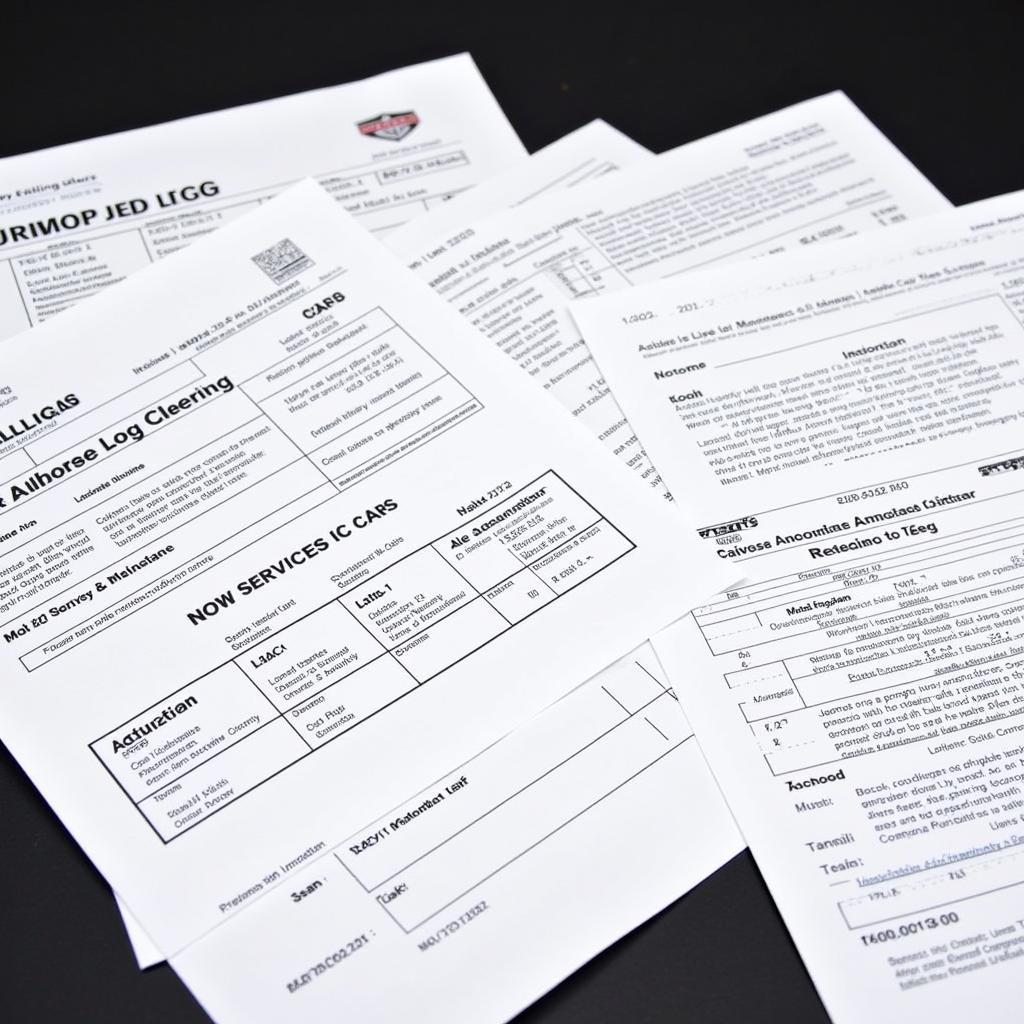Can You Find Your Car’s Service History?
Finding your car’s service history is crucial for both maintaining its value and ensuring its longevity. Knowing what maintenance has been performed, when, and where can help you make informed decisions about future repairs, diagnose current issues, and even negotiate a better price when selling. But how exactly can you find this vital information?
Why Your Car’s Service History Matters
Maintaining a comprehensive service history is like keeping a health record for your car. It provides a chronological account of all maintenance and repairs, offering valuable insights into its past and present condition. This information is essential for a number of reasons:
- Predictive Maintenance: By analyzing past service records, you can anticipate upcoming maintenance needs, like timing belt replacements or fluid changes, preventing costly breakdowns and maximizing the lifespan of your vehicle.
- Accurate Diagnosis: When experiencing car trouble, knowing the history of repairs can help mechanics quickly pinpoint the problem, saving you time and money on diagnostic tests.
- Resale Value: A well-documented service history increases the resale value of your car. It demonstrates to potential buyers that the vehicle has been properly maintained and increases their confidence in its reliability.
- Warranty Claims: In some cases, maintaining a complete service history is required to validate warranty claims. Having proof of regular maintenance can protect you from unexpected repair costs.
 Car Service History Records
Car Service History Records
Different Ways to Access Your Car’s Service History
There are several methods you can use to track down your car’s service history, ranging from simple online searches to contacting previous owners.
- Check the Owner’s Manual and Glove Compartment: Often, previous owners will keep service records in the glove compartment or with the owner’s manual. This is a great starting point for your search.
- Online Databases: Several online platforms allow you to access service records by entering your car’s VIN (Vehicle Identification Number). These databases compile information from various sources, including repair shops and dealerships.
- Contact Previous Owners: If you purchased a used car, consider contacting previous owners to inquire about service records. A simple online search or a check with the DMV (Department of Motor Vehicles) might help you locate them.
- Reach Out to Dealerships and Repair Shops: If you know where the car was previously serviced, contact the dealerships or repair shops directly. They may have records on file, especially if the vehicle was regularly serviced at the same location.
How to Maintain Your Car’s Service History
Keeping track of your car’s service history is an ongoing process, but it’s worth the effort. Here are some simple tips to keep your records organized:
- Keep All Receipts and Invoices: Store all receipts and invoices for any maintenance or repair work performed on your vehicle. Consider using a dedicated folder or binder for easy access.
- Log Your Maintenance: Create a logbook or spreadsheet to track your car’s service history. Include details like the date of service, type of service performed, mileage, and the name of the service provider.
- Utilize Digital Tools: Several apps and online platforms are available to help you manage your car’s service history digitally. These tools often provide reminders for upcoming maintenance tasks and allow you to store your records securely in the cloud.
What to Do if You Can’t Find Your Car’s Service History
If you’ve exhausted all avenues and still can’t locate your car’s service history, don’t panic. While having a complete record is ideal, its absence doesn’t mean your car is unreliable. You can start building a new service history from today.
“Even if you don’t have access to past records, maintaining a meticulous service history going forward is incredibly beneficial,” says John Smith, Automotive Service Expert at Expert Auto Solutions. “It not only helps you manage your car’s maintenance but also protects its value in the long run.”
 Mechanic Checking Car Engine
Mechanic Checking Car Engine
Conclusion
Can you find your car’s service history? Yes, with a little effort, you can often uncover valuable information about your car’s past maintenance and repairs. Maintaining a comprehensive service history is essential for responsible car ownership, ensuring your vehicle’s optimal performance, longevity, and resale value. Start building or locating your car’s service history today.
FAQ
-
What is a VIN? A VIN (Vehicle Identification Number) is a unique 17-character code assigned to every vehicle. It can be found on the dashboard, driver-side doorjamb, and vehicle title.
-
Why is my car’s service history important? Your car’s service history provides a record of all maintenance and repairs, helping you anticipate future needs, diagnose problems, and maintain the vehicle’s value.
-
What if I can’t find any service records for my car? Start building a new service history from today. Keep all receipts and invoices for any future maintenance or repairs.
-
Are online service history databases reliable? While many online databases provide accurate information, it’s always best to verify the information with official sources like dealerships or repair shops.
-
How often should I service my car? Refer to your owner’s manual for recommended service intervals.
-
What information should I include in my car’s service log? Include the date of service, type of service performed, mileage, and the name of the service provider.
-
Can a missing service history affect my warranty? In some cases, a missing or incomplete service history can void your warranty. Always refer to your warranty terms and conditions.
Need assistance? Contact us via WhatsApp: +1(641)206-8880, Email: [email protected] or visit us at 456 Oak Avenue, Miami, FL 33101, USA. We have a 24/7 customer support team.

